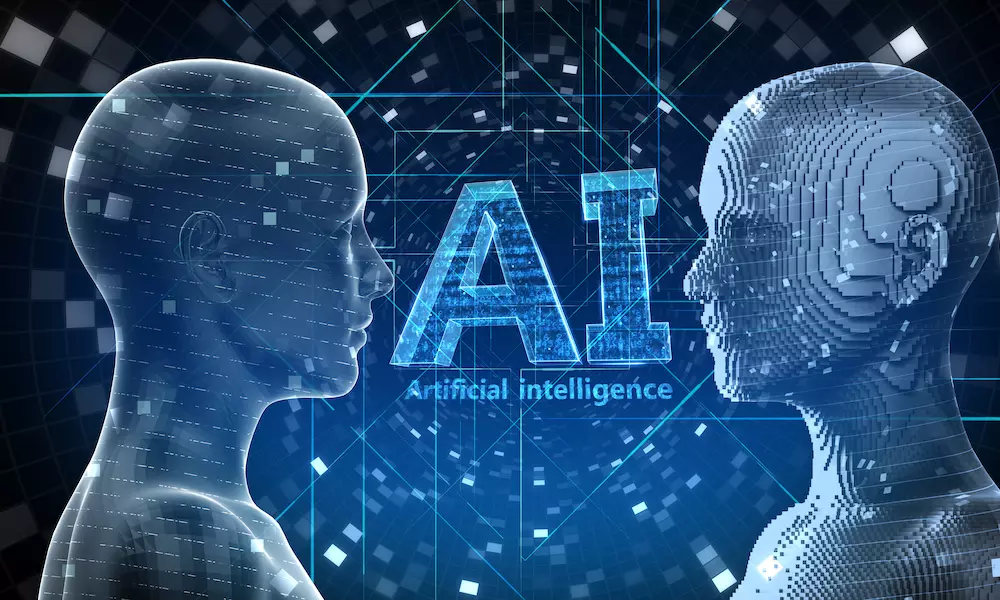Social Media
How Artificial Intelligence Is Transforming Social Media Marketing

Anything that changes the way that people use social media is going to change social media marketing. Based on that fact alone, it only makes sense that AI will continue to significantly impact user activity and online marketing in 2023. Keep reading to learn more.
Before we delve into tools like chatbots, image recognition software, and AI marketing strategies, we need to clear a misconception up – artificial intelligence is not automation however, both technologies are part of Industry 4.0 and used readily in social media marketing and digital marketing generally.
Plus, while we’re at it, let’s also mention significant events that have changed how we’re allowed to use social media. Events like Cambridge Analytica’s role in the 2016 US election and, more recently, the streaming of terrorist acts on social media have been game-changers for social media owners and users.
New Rules Of Engagement
The Christchurch Call witnessed 17 Tech companies and governments signing up to a non-binding pledge agreement to take specific action to curb user activity like the streaming of acts of violence.
Recently, social media promoted freedom of expression, and for the most, it worked well, doing more good than harm. However, the Christchurch Call has been a game-changer for social media. It has resulted in sweeping changes to the rules of engagement on platforms like Facebook, and now there is a more significant commitment to enforcing community standards.
AI will also play a more significant role in monitoring users and their activity with algorithms determining which content is shown. Will more control influence how AI is used in social media marketing? To answer this question, let’s look at where it’s in use today.
AI In Marketing
How do we know artificial intelligence is being used in marketing? You may never know unless you look for it. For example, the emails you get from markers will be more personalized thanks to personalized data capture on smart data capture forms. You’ll read the email and wonder how they knew you liked apples, not oranges.
Most digital marketing platforms will use AI to capture, analyze and curate content for you. The content will be on social media, emails, and mobile messages. TV ads and video marketing can inject personalization that pricks your ears and attention.
Where is AI in marketing?
Inc. has 10 examples of where you can find AI in marketing, including:
- Content curation
- Headlines
- Product recommendations
- Ad targeting
- Language recognition
- SEO
Here are some examples of tools and strategies using AI today.
Chatbots Can Gain Information About Customers and Market Directly to Them
More and more often, consumers are interacting with brands via messenger apps. They may do this through Facebook messenger, apps such as WhatsApp, or even proprietary messengers that brands offer via their own apps or websites. For customers, this means a more convenient and personalized customer experience.
For marketers, bots bring a double opportunity. The first is the ability to collect both aggregate and personal information. During these chat sessions, customers ask questions, detail their problems, and provide information about their likes and dislikes. That’s a lot of information to be collected and mined for future campaigns and engagement.
The other opportunity is more immediate in nature. By using artificial intelligence, bots can determine, in real-time, what the customer’s needs are. They can market to them directly with product recommendations, links to informational content, and information about upcoming offers and events.
Image Recognition Software Can Help Brands Find Their Products Online
Picture this scenario, a company makes adorable hiking boots, and they are intended for the most intensive of outdoor sports. The company envisions people climbing mountains or trekking through National Parks.
Not long ago, once those boots were sold, the company would have little knowledge of where they ended up or how they were used. Sure, some customers might post pictures on Instagram and tag the company. Still, most people wouldn’t take this action.
Companies don’t have to wait for the continuous improvement of image recognition software. They can use Google Cloud Vision or other emerging AI tools to search through thousands of images containing pictures of their products and company names. Then the user can mine or search through the results for information pertinent to them, such as location, and identify objects commonly included in those images.
What’s the value of this? That’s simple insight. Sometimes a company or brand isn’t always correct when they try to predict how and where their products are used.
Here is a likely scenario. Imagine being a CMO (Chief Marketing Officer) at the company selling those upscale hiking boots only to, later on, find out that instead of being sold to rugged outdoors types, the shoes were hugely popular among college students as a fashion accessory. Wouldn’t that impact your marketing strategies for that product moving forward?
AI Can Personalize Email Marketing at a Nearly Atomic Level
Email marketing is highly effective. One of the reasons for this is personalization. Marketers can segment their lists based on geography, demographics, and other factors. Then, they can adjust the email content and frequency as needed to best target each segment.
Thanks to AI, marketers can personalize each customer’s email marketing experience. Instead of guessing which segment they match, AI can be used to customize content based on which product pages they have viewed, videos and watched, and even the links they have clicked (or ignored) in previous emails.
This means that one customer might receive a very content-rich email once a week while another might receive one only once every two weeks. Then, based on that customer’s behaviors, that email might cut to the chase and simply provide links to sales and special offers. This can be driven by data collected from on-site behavior and interactions between the customer and the brand.
AI Could Play a Role in Helping Marketers Localize Content for New Markets
Imagine that you have expanded your business into several foreign markets. Getting your social media content out to new audiences is an intensive undertaking. After all, not only does that content need to be translated, it must be localized to retain messaging and impact. Imagine if you could simply feed all that content to an AI tool, then a service instantly translates and localizes it.
We aren’t quite there yet. Humans are still needed to make marketing content meaningful to a new audience. However, we may be on our way to some profound breakthroughs. AI technologies such as natural language processing, speech recognition, and deep learning could help to automate the localization process in years to come.
AI Used to Create and Curate Social Media Content
Gartner predicted that by 2018, 20% of business content would be created by machines. However, that does not mean that bots will begin generating blog posts. Instead, it means that AI is now being used to create content on social media and other marketing channels using templates and data.
There are also content curation, suggestion tools, and plugins for platforms like WordPress. These serve up articles and other content to fit brands’ audiences well. Thanks to AI technology, these curation tools can be trained to improve their suggestions based on previous responses.
AI Will Continue to Influence SEO
Google uses a variety of ranking signals to determine search engine results. The third of these signals is Rankbrain. The more AI is used in determining SEO, the fewer techniques, such as using keywords, matter. Instead of crawling websites, Rankbrain uses human behavior instead. So, this means bounce rates, time on page, video click-through rates, and scrolling are becoming a much bigger factor. If this ‘sticks’ could hugely influence social media marketing content standards. Content creators will eventually realize that great content will earn better SEO than using keywords or catchy headlines.
Conclusion
AI gives tech companies and governments greater control over social media users and content. Ai is also used to personalize content and user experiences. Thus it’s helping social media marketers understand the best content to present to a user, e.g., what products to show a user based on their likes and dislikes preferences. In the future, it will be more effective at localizing content quickly and easily. There’s even some limited potential for content creation. Savvy digital marketers are exploring their options now.






